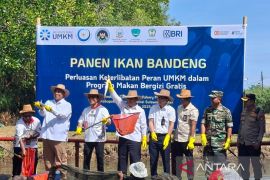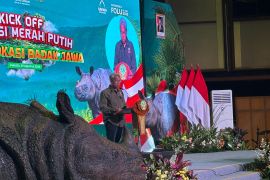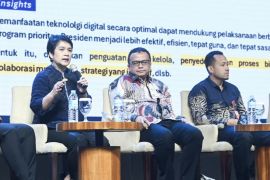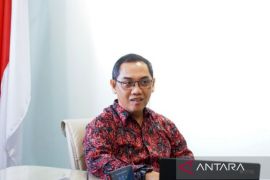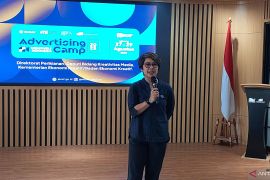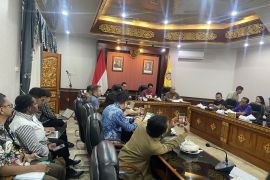"Currently and up to 10 years to come, Indonesia will enjoy its demographic bonus, where the majority of the population belongs to the productive age," Industry Minister Airlangga Hartarto said in a written statement over the weekend.
Therefore, the Ministry of Industry has cooperated with 117 companies to sign cooperation agreements with 389 SMKs in an effort to run an industrial vocational education program in Central Java and Yogyakarta.
This program is a continuation of what has been launched in Mojokerto on Feb 28, 2017, involving 50 companies and 234 vocational schools in East Java.
"The industrial vocational education program will be launched gradually in the provinces of West Java, Jakarta, and Banten, as well as in Sumatra and other parts of Indonesia," Airlangga noted.
In the period 2017-2019, the Ministry of Industry had designed a number of activities to prepare a certified industrial workforce of 1,040,552 people.
In addition to coaching and development of SMKs that link and match with industry, 3-in-1 (training-certification-job placement) training, apprenticeship industry, and competency certification program will also be implemented.
Implementation of these programs is collaborated with various relevant stakeholders such as the Indonesian Chamber of Commerce and Industry (Kadin), the Ministry of Research and Technology and Higher Education, and Ministry of Manpower.
Besides, the Ministry of Industry has also developed e-commerce business in order to spur the development of small and medium industries (IKM) in Indonesia.
"We have launched the IKM e-smart program in the face of the Industrial era," the minister said, explaining that his side has prepared four strategic steps, so that Indonesia would be ready to implement technology and innovation that support the fourth industrial revolution.
"The first step is the development of human resources through vocational school. The second step is the utilization of digital technology to boost productivity and competitiveness for small and medium industries (IKM) through e-Smart IKM," he said.
The third step is the use of digital technologies such as Big Data, Autonomous Robots, Cyber-security, Cloud, and Augmented Reality. The fourth is technological innovation through startup development by facilitating business incubation sites.
"We have an Apple innovation center and some companies that are also interested to build an innovation center," Hartarto concluded.(*)
Editor: Heru Purwanto
Copyright © ANTARA 2017


